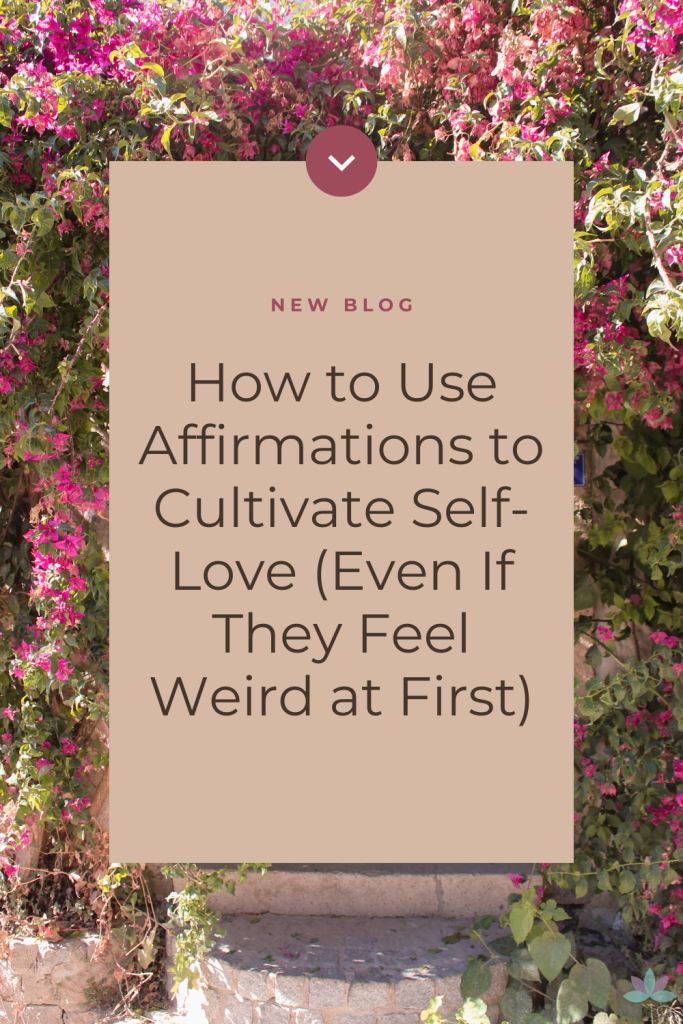
Affirmations have a bit of a reputation. Maybe you’ve seen those overly cheerful morning routine videos where someone stares into a mirror, declaring, “I am powerful! I am unstoppable!”—and you’ve thought, Yeah, okay, but I don’t feel that way.
If that sounds familiar, you’re not alone. A lot of people struggle with affirmations, especially when self-love doesn’t come easily. But here’s the thing: affirmations aren’t about instantly believing a new thought—they’re about planting seeds. And with time, those seeds grow into something real.
Why Affirmations Work (Even If They Feel Fake at First)
The way we talk to ourselves matters. Our brains are wired to believe what we tell them repeatedly. It’s why negative self-talk can be so damaging—when we tell ourselves we’re not good enough, we start acting like it’s true. The good news? The opposite is also possible.
Affirmations work through a process called neuroplasticity—basically, your brain’s ability to form new pathways. Repeating affirmations isn’t about lying to yourself; it’s about giving your brain a chance to believe something different. With consistency, what starts as words can become your reality.
How to Make Affirmations Feel More Natural
The biggest mistake people make with affirmations is choosing ones that feel impossible to believe. If you go from “I hate how I look” to “I love every inch of my body,” your brain might throw up a giant nope. Instead, try a gentler step:
🔹 Start with something neutral – Instead of “I love myself,” try “I am open to treating myself with more kindness.”
🔹 Make it about effort, not perfection – “I’m learning to appreciate myself” is much easier to accept than “I’m completely confident.”
🔹 Tie it to something real – If “I am strong” feels like a stretch, reframe it as “I have survived every hard day so far.” That’s a fact, not just a feel-good phrase.
Powerful Affirmations for Self-Love
Here are a few affirmations that might resonate, especially if self-love feels like unfamiliar territory:
- I am learning to be kinder to myself.
- My worth is not determined by my productivity.
- It’s okay to take up space and have needs.
- I can respect my body, even if I don’t always love it.
- I deserve the same kindness I give to others.
- My feelings and experiences are valid.
- I am more than my worst day or my biggest mistake.
- I am growing, even when it doesn’t feel like it.
How to Make Affirmations a Habit
Saying something once won’t change much, but repetition is key. Here’s how to work affirmations into your daily life:
📌 Write them where you’ll see them – Stick them on your mirror, your laptop, or set them as phone reminders.
📌 Pair them with something routine – Say them while brushing your teeth, making coffee, or commuting.
📌 Use them as journal prompts – Instead of just saying them, write about what they mean to you that day.
📌 Say them out loud (or in your head) – Hearing your own voice can reinforce them, but if that feels weird, even thinking them works.
Final Thoughts
Self-love is a practice, not a finish line. Affirmations won’t change everything overnight, but they can shift the way you see yourself—one thought at a time. Even if they feel unnatural at first, give them space. You might be surprised at what grows.
Our team of compassionate therapists is here to help you find the support you need. We believe in a holistic approach, treating your mind, body, and spirit. With a blend of traditional and alternative therapies, we tailor your experience to meet your unique needs. At Blossom, we create a non-judgmental space where you can be your authentic self. Our goal is to empower you, amplify your strengths, and help you create lasting change. Together, we’ll navigate life’s challenges and help you bloom, grow, blossom! You deserve to become the best version of you.




